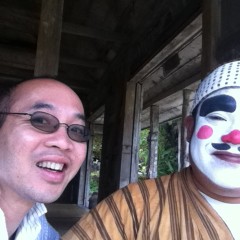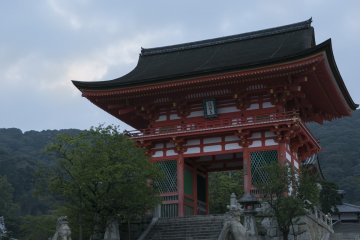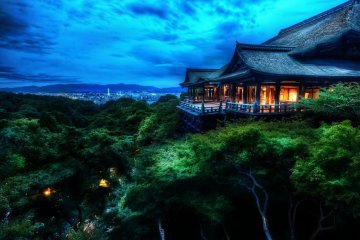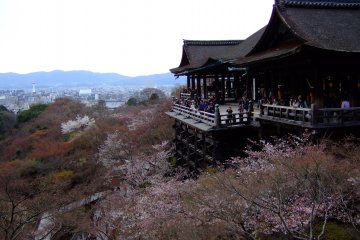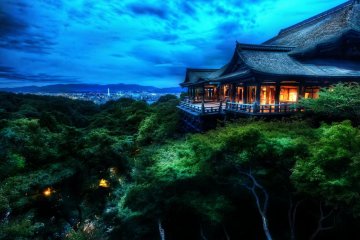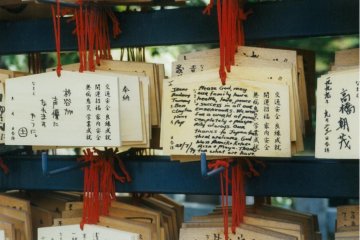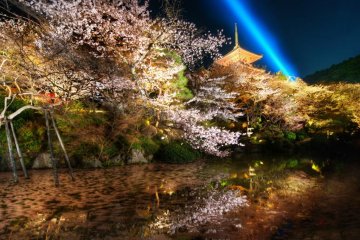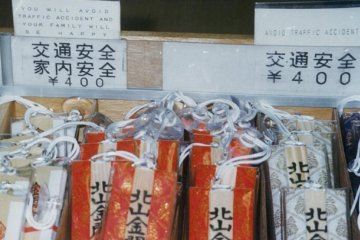In Kiyomizu-dera they sell a charm which says “avoid traffic accidents”, and another charm which says “You will avoid traffic accidents and your family will be happy”. They were both ¥400 each. I wondered; why would you want to buy the first one, when for no extra charge, your family will be happy as well?

I thought, I don't usually pray for safety from traffic accidents, except when I am on my bike on the highway, or if my wife is out late at night, or when I get a death knock in my stomach during some sudden turbulence mid-flight. Wow, maybe I do pray about it a lot.
What is the value of an answered prayer? Is it ¥400? What if we don't get what we pray for? Does that mean that God doesn't exist? Or that he is bigger than the object of our prayers. What do we do when our prayers are answered, but then realize we are still not satisfied?
The wonders of traveling are in these moments of such reflection, it clears your mind to think of the bigger questions in life.
Being one of the most popular attractions in Kyoto, this is not a place for quiet contemplation, well at least not any time after nine o’clock in the morning. It is where humanity comes in all its colors and shapes and with all kinds of hopes and dreams, or just somewhere to admire beauty, something that lifts their spirits.
It is interesting observing the different people at this temple. Some come to admire the beauty of the architecture while others come searching for renewal.
Looking at the many prayer cards hanging in the wind, I feel humbled by the cries from their heart, their compassion for their family and friends, and their tender thanksgiving for the welcomes and opportunities they have received in Japan.
It doesn’t matter what you believe in, we are all made of the same flesh and blood.

Long before Kyoto existed, there was a fresh mountain stream in the far away Otowa Mountains that was reputed to have special qualities. And so in the year 778, Kiyomizu-dera, or the temple of pure water was built. The current buildings you see today were rebuilt in the seventeenth century, including the high viewing platform. There is a saying amongst Japanese that when they are about to make a big decision, they are about to jump over the Kiyomizu stage.
Behind the main hall and the viewing stage, on the side of the hill is the smaller Jishu shrine with two stones strategically placed either end. It is said that if you make the walk from one stone to the other, blindfolded and unassisted, you will find your life partner of your dreams.
Hope springs eternal here as many people young and old, with smiles that speak of hope and anticipation, make their way to the other side. Some sly friends may try to mislead them, hoping to get a laugh should they fall off the edge, but most quietly wishing they will make it.
As Holley Gerth reminded me, "hope is the seed God plants in our hearts to remind us there are better things ahead.”


